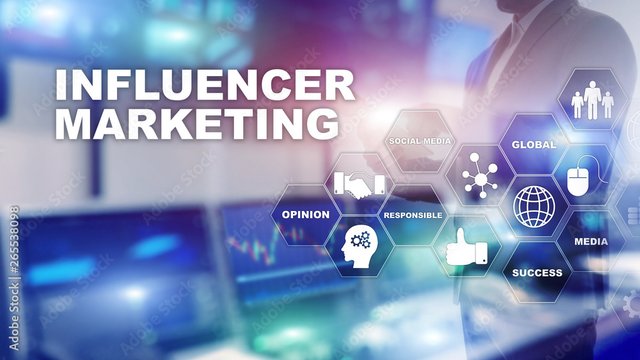
In an era dominated by social media and digital interactions, traditional advertising methods have taken a back seat. The rise of influencer marketing has redefined the way businesses approach their target audience. Brands are no longer solely relying on billboards, TV commercials, or magazine spreads to reach potential customers. Instead, they are partnering with influencers to authentically connect with their target market. This paradigm shift has given birth to a new player in the marketing landscape: the influencer marketing agency. In this comprehensive blog, we'll delve into the world of influencer marketing agencies, exploring their significance, operations, benefits, and challenges.
Understanding Influencer Marketing Agencies
Influencer Marketing:Before we delve into the agency side of things, it's crucial to understand the core concept of influencer marketing. At its essence, influencer marketing involves collaborating with individuals who possess a significant following on various social media platforms. These individuals, known as influencers, have built a loyal audience by creating engaging and relatable content. Businesses leverage influencers' credibility and reach to promote their products or services to a more receptive audience.
The Birth of Influencer Marketing Agencies: As influencer marketing gained momentum, it became clear that managing these collaborations required a specialized approach. This realization led to the emergence of influencer marketing agencies. These agencies act as intermediaries between brands and influencers, facilitating seamless collaborations and ensuring that both parties' interests are met.
The Significance of Influencer Marketing Agencies
Expertise and Network: Influencer marketing agencies are equipped with industry insights, market trends, and data analytics that enable them to identify the most suitable influencers for a particular campaign. Their extensive network includes a diverse range of influencers, spanning various niches and demographics.
Campaign Strategy: Crafting a successful influencer marketing campaign demands a strategic approach. Agencies collaborate with brands to define campaign goals, target audience, messaging, and key performance indicators (KPIs). They then match these requirements with the right influencers to achieve optimal results.
Streamlined Operations:Handling negotiations, contracts, content creation, and performance tracking can be overwhelming for brands, especially those new to influencer collaborations. Agencies streamline these operations, ensuring a smooth and efficient workflow.
The Inner Workings of Influencer Marketing Agencies
Influencer Identification: One of the primary tasks of agencies is to identify influencers who align with a brand's values and campaign objectives. They use various tools and platforms to analyze an influencer's audience demographics, engagement rates, content quality, and authenticity.
Negotiations and Contracts: Once suitable influencers are identified, agencies handle negotiations and contract agreements. This includes discussing compensation, deliverables, usage rights, and other terms that protect both the brand and the influencer.
Content Collaboration: Agencies facilitate the collaboration between brands and influencers when it comes to creating content. They provide guidelines and ensure that the content resonates with the brand's identity while allowing the influencer's unique voice to shine through.
Performance Analytics: After the campaign is launched, agencies monitor and analyze key performance metrics. This includes tracking engagement rates, click-through rates, conversions, and overall campaign success. Insights from these metrics help in refining future campaigns.
Benefits of Collaborating with Influencer Marketing Agencies
Expertise: Influencer marketing agencies are staffed with professionals who have a deep understanding of the industry. Their expertise ensures that brands are connected with influencers who can deliver meaningful results.
Time and Resource Efficiency: Managing influencer collaborations requires time and effort. Agencies take the burden off brands' shoulders, allowing them to focus on their core business operations.
Creative Campaigns: Agencies bring creativity to the table by brainstorming innovative campaign ideas that resonate with the target audience. Their fresh perspectives often lead to more engaging and effective campaigns.
Measurable Results: The success of influencer marketing campaigns isn't left to chance. Agencies track and measure the performance of each campaign, providing brands with quantifiable results and insights.
Challenges and Considerations
Authenticity Concerns: Maintaining authenticity in influencer marketing can be challenging, as some influencers might prioritize monetary gains over genuine endorsements. Agencies need to carefully vet influencers to ensure their credibility.
Audience Mismatch: If an influencer's audience doesn't align with a brand's target demographic, the campaign's effectiveness could be compromised. Agencies must conduct thorough audience analysis to mitigate this risk.
Influencer Relations: Establishing and nurturing relationships with influencers is pivotal. Agencies must strike a balance between satisfying brands and respecting influencers' creative freedom.
The Evolving Landscape
Influencer marketing agencies are continuously evolving to adapt to the ever-changing digital landscape. They are incorporating AI and data analytics to refine influencer selection and campaign strategies. Moreover, agencies are focusing on micro and nano influencers, who often have a more engaged and niche audience, leading to higher conversion rates.
Conclusion
The rise of influencer marketing agencies has transformed the advertising landscape. These agencies bridge the gap between brands and influencers, facilitating authentic collaborations that resonate with today's digital-savvy consumers. With their expertise, network, and strategic approach, influencer marketing agencies are poised to play an increasingly significant role in shaping the future of advertising. As businesses continue to seek innovative ways to connect with their audience, the influencer marketing agency's journey is bound to be an exciting one, marked by creativity, data-driven insights, and meaningful brand-consumer interactions.